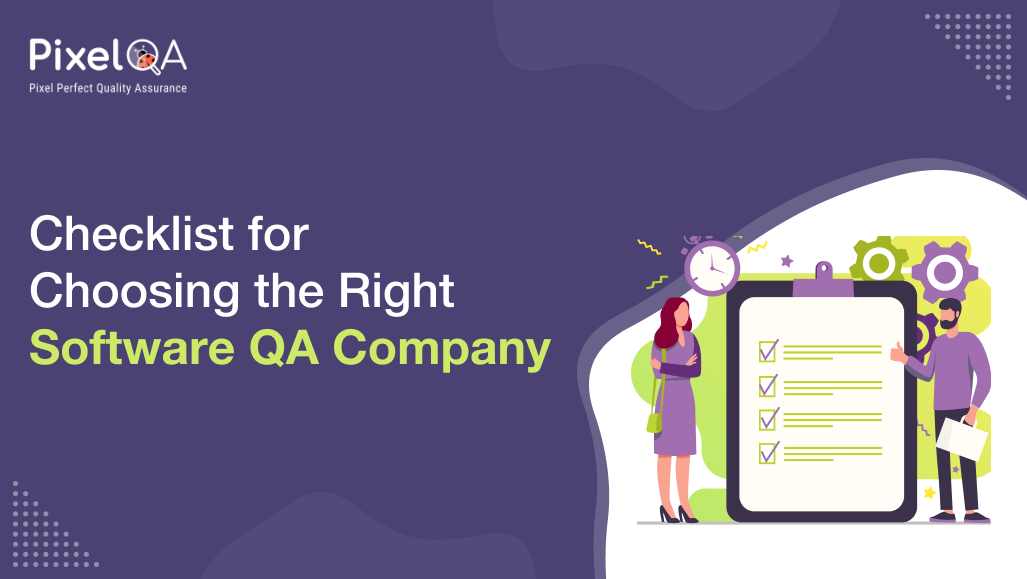
Are you inadvertently bleeding money, losing customers, and damaging your brand, all because of your software? Many businesses are falling victim to the hidden costs of inadequate software quality assurance (QA). It's a scenario all too common. You invest time and money into creating a revolutionary product. Only to have it beset by bugs, crashes, or security holes, chasing away customers. The consequences of selecting the wrong QA partner are dire. Impacting everything from your reputation to your bottom line and customer loyalty.
If you're responsible for selecting a software QA firm to protect your product and your company's reputation? How do you know you're making the best, most strategic decision? This checklist offers a real-world, value-driven guide for business decision-makers. Those who want a QA partner that gives them not only test cases but also actual business value.
1. Expertise and Domain Experience
Why It Matters: Each industry has its unique software idioms and regulation requirements. A generic, one-size-fits-all QA solution tends to overlook the minutiae but important domain-specific problems.
What to Look For:
- Relevant Portfolio: Ask for similar projects, especially those in your sector (fintech, healthcare, e-commerce, etc.).
- Specialist Testers: Make sure the team includes testers. With experience in your tech stack and business processes.
- Regulatory Familiarity: For regulated businesses, evaluate awareness of frameworks. Such as GDPR, HIPAA, or PCI DSS.
Benefit: A QA partner who is familiar with your space streamlines onboarding. Identifies defects early that are specific to your industry, and saves you from compliance traps.
2. Range of Services and Testing Capabilities
Why It Matters: Modern software faces threats and challenges on multiple fronts. Like usability, security, scalability, and more. Limiting QA to just basic functional testing leaves your product exposed.
What to Look For:
- In-depth Testing: Ensure the firm offers automated and manual testing. As well as performance, security, compatibility, and usability testing.
- Tools and Techniques: Enquire about their skills with popular QA tools. Like Selenium, Appium, JMeter, and agile methodologies.
Benefit: With a vast array of tools, there is assured test coverage. Reduces risk and facilitates smoother product releases.
3. Communication and Collaboration
Why It Matters: Miscommunication often translates into missed defects and project delays. Effective QA isn’t just about testing, it’s about proactive partnership.
What to Look For:
- Transparent Processes: Are there transparent reporting processes with regular updates?
- Project Management: Do they use project tools that you currently use, such as Jira or Trello?
- Responsiveness: Try their communication style and responsiveness in the first encounters.
Benefit: Seamless collaboration brings out problems early on. Responds rapidly to changing requirements and keeps you continuously aligned with your objectives.
4. Quality Metrics and Reporting
Why It Matters: Without metrics, QA results are subjective at best. Quantitative insights reveal true software readiness and areas for improvement.
What to Look For:
- Detailed Reporting: Search for example, QA reports with statistics. Such as defect density, test coverage, and resolution time.
- Outcome Focus: Is the company able to link results to business outcomes, such as less downtime or higher customer satisfaction?
Benefit: Quantifiable QA processes enable data-driven decision-making. And drive accountability, both within your organization and with your service provider.
5. Security Standards and Data Practices
Why It Matters: Entrusting an external company with your code and data introduces security risks. Breaches or leaks can be devastating.
What to Look For:
- Certifications: Verify certifications like ISO 27001, SOC 2, or other accepted security certifications.
- Data Handling Policies: Inquire about access controls. As well as Anonymization of data, and secure testing environments.
Benefit: Strong security habits safeguard IP, user information, and your brand reputation.
6. Flexibility and Scalability
Why It Matters: As your software evolves through new features, user growth, or market pivots, your QA needs will shift. A rigid partner can stall your momentum.
What to Look For:
- Flexible Engagement Models: Can they scale services up or down as needed? Project-based, dedicated teams, on-demand testing?
- Global Coverage: For products with global users? Review time zone support and language localisation.
Benefit: Flexible QA partnerships enable resources to be aligned with business realities. Avoiding over- or under-spending.
7. Client References and Reputation
Why It Matters: Testimonials and case studies offer a glimpse into what partnership really looks like. Beyond sales pitches.
What to Look For:
- References: Request direct references and explore third-party review platforms.
- Case Studies: Look for real-world examples of problem-solving and value delivered.
Benefit: Trusted QA companies back up their promises with satisfied clients, reducing your risk.
The Conclusion
Choosing the right software QA company is not a technical choice, it's a strategic one. With deep consequences for your product, user experience, and bottom line. Make this checklist your due diligence toolkit. Your ideal QA partner is more than a bug-finder: they protect your reputation, speed your go-to-market, and liberate your team to innovate.
Act now: Start a dialogue with PixelQA. The margin between a mid-range product and market domination may simply be the competence of your QA. And with which company you choose to partner with it.

